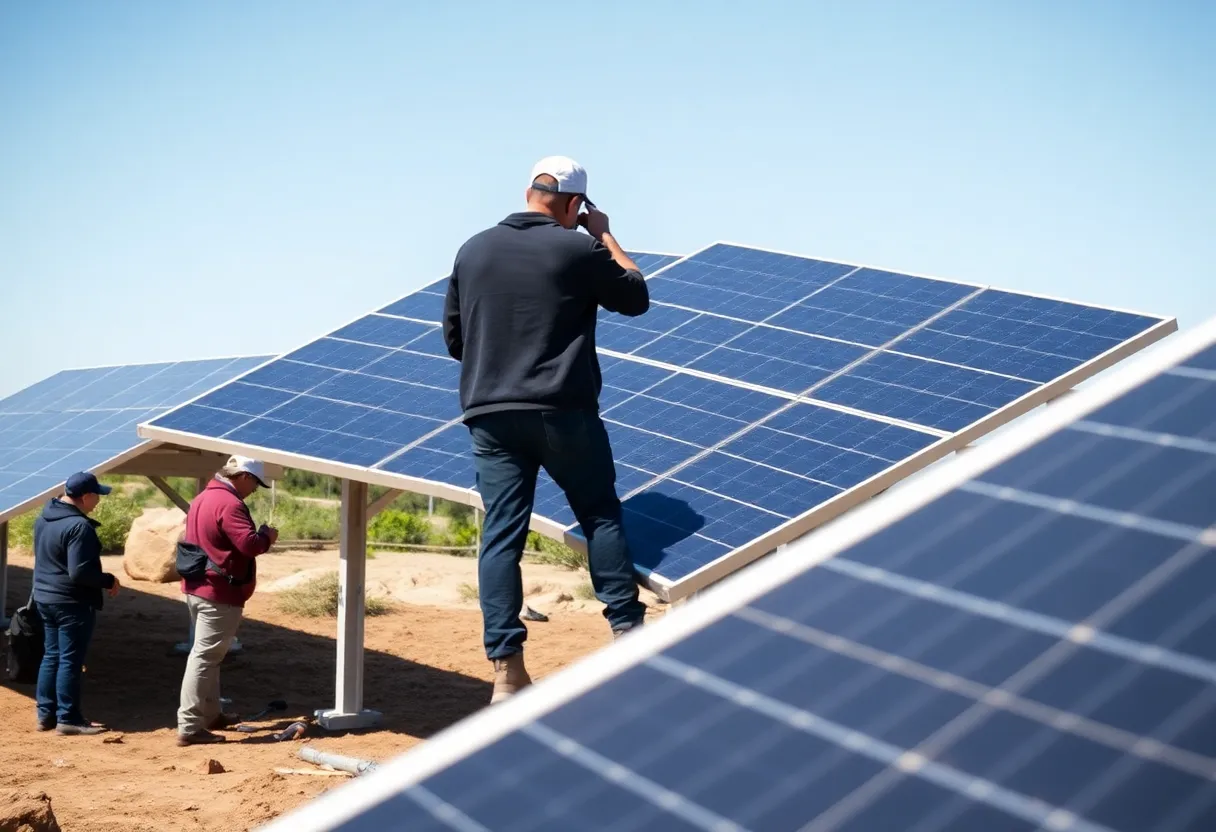News Summary
California’s Assembly Bill 942 has been significantly revised, now focusing on consumer access to carbon credits instead of rooftop solar incentives. The amendments follow public protests against the original plan, which aimed to shift costs from solar to non-solar customers. Authors and supporters believe these changes will promote lower electricity costs for all Californians while discussions around solar installation legislation continue. As scrutiny and debates surrounding solar energy subsidies intensify, the impact of these changes will be closely monitored by advocates and consumers alike.
California has seen significant changes to Assembly Bill 942, a legislation originally aimed at reforming rooftop solar incentives. The latest amendments remove all references to these incentives, reflecting a shift in focus driven by strong public opposition and advocacy from solar homeowners and industry supporters.
This contentious bill, authored by Assemblymember Lisa Calderon, was initially designed to address the growing financial burden on non-solar customers due to subsidies that primarily benefit solar panel owners. Specifically, the original proposal mandated that new property owners with rooftop solar systems switch to a lower net metering tariff, thereby affecting the financial agreements held by previous owners. However, during a Senate Energy, Utilities and Communications Committee meeting on July 15, the bill was significantly modified to prioritize consumer access to carbon credits instead.
Support for these amendments has emerged from forward-thinking individuals in the solar community, such as Greg Sparks from Davis. Following the adjustments, solar advocates withdrew their opposition to the bill, crediting public turnout at protests as a decisive factor in changing the legislation’s direction. This public pressure has been recognized by experts and activists, such as Bernadette Del Chiaro, who emphasized the success of coordinated opposition against the bill’s initial goals.
Calderon has defended the newly redrafted AB 942, arguing that the bill now aims to produce lower electricity costs for the majority of Californians, a statement reflecting a commitment to address long-term affordability concerns for all energy consumers in the state. The bill is set to proceed to the Senate Appropriations Committee for potentially further amendments or, alternatively, the possibility of stalling the entire legislative process.
The ongoing discussion around rooftop solar incentives remains a hot-button issue in California, with advocates closely monitoring related legislative developments. One such piece of legislation, SB 710, could enhance the potential for solar installations, signaling that the debate is far from over.
Background analysis of previous legislation indicates that the existing incentive structures for rooftop solar date back to the mid-1990s. While these incentives were initially designed to promote the adoption of clean energy technologies, they have resulted in increasing costs for non-solar households. Last year, these subsidies reportedly shifted over $8.5 billion in costs, primarily affecting ten million non-solar customers across the state.
The financial dynamics created by rooftop solar subsidies have raised serious concerns about economic imbalances and fairness in energy costs. Protesters against AB 942 presented arguments highlighting that altering these subsidies could potentially decrease property values for homes equipped with solar systems. This underscored the emotional and practical stakes involved, as many homeowners face jeopardy not just in their energy bills but also in their investment in property.
Complications have also emerged around Calderon’s prior employment with Southern California Edison, which has led to suspicions regarding the motivations behind her advocacy for the bill. Critics have raised concerns about potential conflicts of interest, further igniting public debate over the underlying intentions of the proposed reforms.
Overall, Assembly Bill 942 reflects a broader trend of regulatory changes affecting the compensation structures for solar energy in California. As the legislation progresses through the political landscape, its implications for solar power, consumer equity, and energy affordability will remain closely scrutinized by advocates and the public alike.
Deeper Dive: News & Info About This Topic
- Sacramento Bee: Op-Ed on Solar Incentives
- Wikipedia: Solar Energy in California
- KTVU: California Bill on Rooftop Solar Credits
- Google Search: California rooftop solar incentives
- Mercury News: Controversial Solar Bill in Sacramento
- Encyclopedia Britannica: Solar Power
- ABC10: Changes by California Public Utilities Commission
- Google News: California solar energy protests

Author: STAFF HERE BEVERLY HILLS WRITER
The Beverly Hills Staff Writer represents the experienced team at HEREBeverlyHills.com, your go-to source for actionable local news and information in Beverly Hills, Los Angeles County, and beyond. Specializing in "news you can use," we cover essential topics like product reviews for personal and business needs, local business directories, politics, real estate trends, neighborhood insights, and state news affecting the area—with deep expertise drawn from years of dedicated reporting and strong community input, including local press releases and business updates. We deliver top reporting on high-value events such as the Rodeo Drive Concours d'Elegance, the Beverly Hills artSHOW, Concerts on Canon, and holiday celebrations throughout the city. Our coverage extends to key organizations like the Beverly Hills Chamber of Commerce and Visit Beverly Hills, plus leading businesses in luxury fashion, hospitality, and entertainment that drive the local economy. As part of the broader HERE network, including HERELosAngeles.com, HERESantaAna.com, HEREHuntingtonBeach.com, and HERECostaMesa.com, we provide comprehensive, credible insights into Southern California's dynamic landscape.



